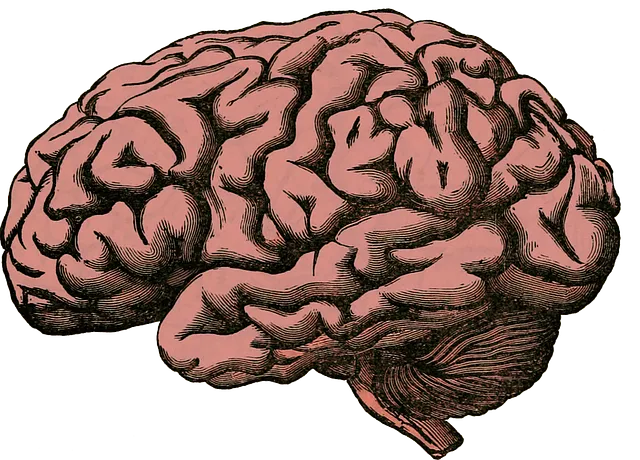Media portrayal significantly influences public perceptions about mental health, either fostering understanding or perpetuating harmful stereotypes. The Superior Kaiser Permanente Behavioral Health Center addresses this by promoting accurate and positive representations in their communication strategies. They encourage open discourse about mental wellness coaching programs to reduce stigma and empower individuals to manage mood and improve self-esteem as part of overall health. By engaging with media creators and implementing education programs, the center combats negative stereotypes and misrepresented narratives, fostering a more supportive society for those facing mental health challenges.
Mental illness representation in media significantly influences public perception and understanding of mental health. This article delves into the profound impact of media portrayal, highlighting how inaccurate depictions can perpetuate stigma. We examine the current state of affairs, where media often misrepresents mental illnesses, contributing to misconceptions. The Superior Kaiser Permanente Behavioral Health Center offers a model for accurate representation through its innovative approaches. We propose strategies to enhance media’s role in promoting mental health awareness and conclude with a call to action for collaborative positive change.
- Understanding the Impact of Media Portrayal on Mental Health Perception
- The Current State: How Media Often Misrepresents Mental Illness
- Kaiser Permanente Behavioral Health Center's Approach to Accurate Representation
- Strategies for Enhancing Media's Role in Mental Health Awareness
- A Call to Action: Collaborating for Positive Change
Understanding the Impact of Media Portrayal on Mental Health Perception

Media portrayal plays a significant role in shaping public perceptions about mental health and illness, which can have profound effects on individuals seeking support for their well-being. The way mental illnesses are depicted in films, television shows, and news media can either foster understanding and empathy or perpetuate harmful stereotypes and misconceptions. For instance, the lack of accurate representation of behavioral health issues in the past has contributed to stigmatization, making it challenging for people to acknowledge and seek help for their struggles.
At the Superior Kaiser Permanente Behavioral Health Center, we recognize the power of media influence on mental wellness perception. That’s why we prioritize promoting positive and realistic portrayals in our own communication strategies, encouraging public discourse that emphasizes mental wellness coaching programs’ development. By addressing mood management and self-esteem improvement as integral parts of overall health, we aim to reduce the stigma surrounding behavioral health care while empowering individuals to take control of their mental well-being.
The Current State: How Media Often Misrepresents Mental Illness

In today’s digital age, media plays a pivotal role in shaping public perception about mental health. However, the current state of representation often falls short and contributes to misconceptions. Many popular media outlets still portray mental illness as a rare, extreme condition, rarely reflecting its widespread prevalence. Stories of severe depression or schizophrenia dominate narratives, overshadowing the vast spectrum of experiences that fall under these disorders. This misrepresented portrayal can lead to stigma, causing individuals to feel ashamed or afraid to seek help from superior Kaiser Permanente behavioral health centers.
The impact of such media portrayals extends beyond public perception; they influence how those struggling with their mental wellness perceive themselves. Negative stereotypes often depicted in films, television shows, and even some news articles can erode confidence boosting initiatives and contribute to poor mood management. This is particularly harmful for young audiences who are impressionable and may internalize these messages as fact. As a result, there’s a growing need to challenge these narratives and offer more authentic representations that promote mental wellness, potentially through engaging Mental Wellness Podcast Series Production, to foster open conversations about mental health issues.
Kaiser Permanente Behavioral Health Center's Approach to Accurate Representation

The Superior Kaiser Permanente Behavioral Health Center has taken a pioneering approach to tackling mental illness representation in media by promoting accurate and compassionate storytelling. They recognize that media portrayal significantly influences public perception, often shaping societal attitudes towards mental health. To combat stereotypes and misconceptions, the center actively engages with filmmakers, writers, and journalists, offering insights into the complexities of various mental health conditions.
Through their initiative, Kaiser Permanente aims to integrate Mental Health Awareness into narratives, showcasing the diversity of experiences while emphasizing the importance of Depression Prevention strategies. They design Mental Health Education Programs that teach empathy and accurate representation, ensuring media content reflects reality without exacerbating stigma. This proactive measure not only educates the public but also fosters a more supportive environment for those living with mental health challenges.
Strategies for Enhancing Media's Role in Mental Health Awareness

Media has a powerful influence over public perception, and when it comes to mental health, this responsibility is immense. To foster a more understanding and supportive society, media outlets must strive to represent mental illness accurately and sensitively. One effective strategy is to collaborate with renowned Kaiser Permanente behavioral health centers, leveraging their expertise to ensure content is evidence-based and up-to-date. By showcasing successful recovery stories and promoting awareness campaigns, media can dispel myths surrounding mental health issues, encouraging viewers to seek help without stigma.
Additionally, media professionals should focus on normalizing conversations around mental wellness. This can be achieved by featuring diverse individuals sharing their personal journeys, emphasizing the universality of these struggles. Such narratives can boost confidence among viewers facing similar challenges and educate others about the importance of early intervention in depression prevention. Moreover, integrating mental health risk management planning into storylines can provide valuable insights for at-risk audiences and professional development opportunities for mental health practitioners watching the media.
A Call to Action: Collaborating for Positive Change

The representation of mental illness in media has long been a subject of debate, often perpetuating stereotypes and misconceptions that hinder understanding and support for those affected. It’s time to take action and foster a more inclusive narrative. By collaborating across industries, we can drive positive change and ensure accurate, empathetic portrayals of mental health struggles.
The Superior Kaiser Permanente behavioral health center serves as a model for this partnership. Through initiatives like Emotional Well-being Promotion Techniques, Conflict Resolution Techniques, and offering Mental Wellness Journaling Exercise Guidance, they’re not just treating individuals but also educating the public and disarming stigma. This collaborative approach, mirroring in media representation, can lead to a more supportive societal environment, where mental illness is met with compassion rather than judgment.
Media plays a pivotal role in shaping societal perceptions of mental illness. By challenging harmful stereotypes and promoting accurate representation, we can foster understanding and reduce stigma. The Superior Kaiser Permanente Behavioral Health Center has set an exemplary standard with its commitment to authentic portrayal. Moving forward, it’s imperative for media outlets, content creators, and healthcare providers to collaborate, ensuring that stories about mental health are told with sensitivity, empathy, and accuracy. Together, we can create a more inclusive and supportive environment where individuals affected by mental illness feel seen, heard, and understood.






